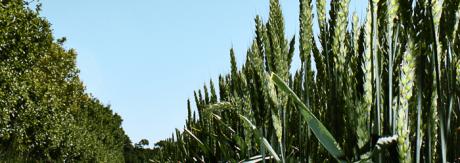
Letter to the editor: Bioenergy – sustainable Danish strength
But this is not a correct picture of the Danish bioenergy industry, which has developed a number of the worlds’ most effective and sustainable bioenergy technologies, and is at the same time very far in the development of even better solutions, writes Martin Lidegaard, Danish Climate-, Energy-, and Building-minister and Svend Brandstrup, CEO of Hveiti, in a common letter to the editor in the Danish newspaper Jyllands-Posten, 4. November 2012.
Denmark is in the development towards a society independent of fossil fuels. Here, the Danish bioenergy industry is needed. Biomass and organic waste will provide 1/3 of our energy, and it is at the same time an important precondition for a stable energy system.
When the sun is not shining and the wind is not blowing, it is biomass that has to deliver green electricity and heat.
The increased demand for biomass unfortunately also causes an amplified risk of unsustainable production of biomass. The EU has developed sustainability criteria for biodiesel and bioethanol, but the government and the bioenergy industry also wish to secure a sustainable production of biomass in forests and agriculture - regardless of whether it is used for feed, food, materials or energy.
Denmark in a position of strength
Denmark has developed a position of strength within biomass combined heat and power, and therefore, today, Denmark can deliver unique technological solutions. This position of strength is the result of skilled Danish corporations and a strong effort from the Danish state in the form of research, development and demonstrations.
This can turn out valuable as other countries start demanding technologies that effectively can deliver environment friendly electricity and heat from biomass such as wood, waste and straw.
There are also great potentials for developing new Danish positions of strength within biomass.
Today crude oil is used to produce the majority of the products we use in our daily lives, but with the increasing prices on fossil raw materials and the increased focus on reducing CO2 emissions, there is a need to find alternative options.
Here, bioenergy can play an important role because in the future, it will be able to replace the role of crude oil in the production of plastic. This means that bioenergy, besides from being used for energy purposes, also can be used to produce plastic materials, chemicals, food ingredients and building materials.
By: Danish Climate-, Energy-, and Building-Minister, Martin Lidegaard and
CEO of Hveiti, Svend Brandstrup.
Follow the developments within biorefining. hveiti regularly informs about our efforts to improve the environment.
Copyright © 2011 | Hveiti | Design Rabotnik




